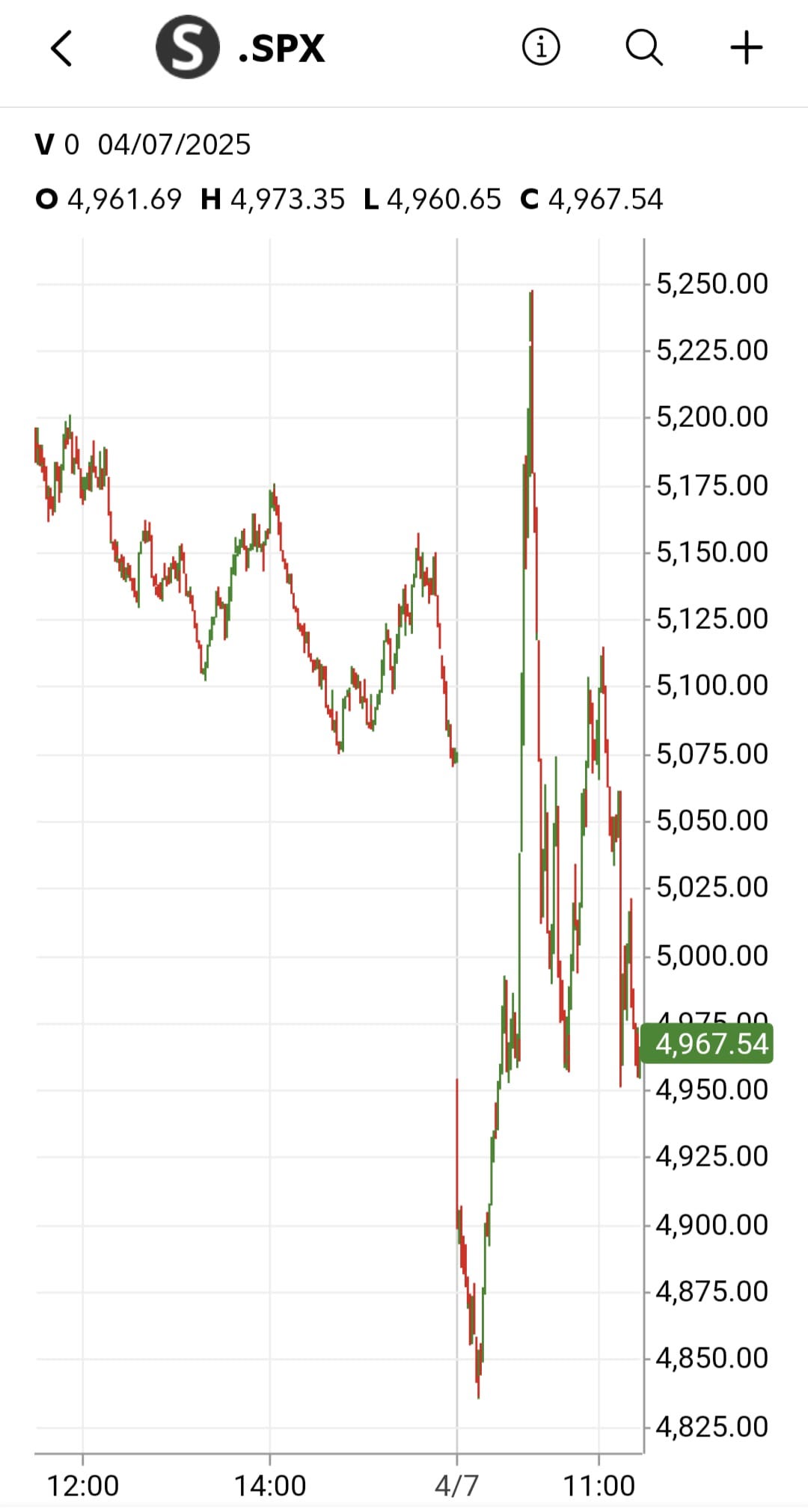Engineered Volatility
At around 8:24am (ET) yesterday the director of the National Economic Council, Kevin Hassett, was asked whether the President was considering a 90-day pause in the tariff policy. He didn’t answer the question directly, which led some observers to believe that such a pause was indeed being considered. The rumor was reported as news by CNBC at 10:14am, and categorically denied by the White House at 10:39am.
Over the course of a few minutes, the market value of publicly traded companies rose by a few trillion dollars, then fell right back down:
I don’t believe that Kevin Hassett intended to cause this market reaction, or that the reporters who amplified the rumor did so in bad faith. But the fact that such large market movements are currently being driven by (actual and rumored) policy choices creates immense opportunities for profit.
About two hours before the Hassett interview, Bob Elliott pointed out that since “recent market moves are largely a function of policy choice rather than a consequence of external macroeconomic pressures… any shift away from these policies could create a significant whipsaw.” While the volatility induced by the Hassett interview was probably unintended, there have indeed been major policy announcements and reversals that have led predictably to the kind of whipsaw effect described here.
When market volatility is engineered in this manner, anyone with a few minutes of advance notice stands to make a fortune. We know that elected officials and political appointees are not shy about trading while in office. And there are many others with proximity to power—family members, dinner guests, golfing partners, and so on—who could enrich themselves with an open ear and a bit of luck.
If someone gains from such activity, who loses?
I have argued previously that even policies that are reversed in full will have an enduring impact through changes in trade flows and geopolitical alliances. But suppose, for the sake of argument, that policies could indeed be reversed without lasting consequence. In this simplified case, who would pay for the windfall profits of the lucky few with inside information?
Long term investors holding index funds would be left relatively unscathed, but individuals and institutions who are trading actively, either on their own account or through intermediaries, will lose on average. This includes people with retirement savings in actively managed funds, as well as organizations such as universities, foundations, and sovereign wealth funds with significant market exposure. These entities will lose as a group, even if some of them manage to time the market and share in the windfall.
Normally one would expect the Securities and Exchange Commission to be on the lookout for suspicious trades that precede major market movements. But this agency is relatively toothless at the moment, and it does not seem to me that investigating those connected to executive power is a high priority.
There has been a lot of discussion of the implications of tariffs for inflation, growth, and the balance of trade, but relatively little attention paid to the effects of engineered volatility on capital flows. If our financial markets come to be seen increasingly as a vehicle for the well-connected to profit from privileged access to information, investors will look elsewhere, and the costs of financing everything from homes and businesses to government budget deficits will rise. And in this case even those with retirement savings in index funds, unconcerned about day-to-day movements and avoiding active trading entirely, will experience lower returns and be left with less to live on when they eventually exit the labor force.
One can debate the merits of various policy initiatives, including those pertaining to international trade. But surely we can agree that policy ought not to be arbitrary and capricious, subject to whim and flights of fancy. That uncertainly should be resolved quickly and decisively. And that volatility ought never to be politically engineered.



Clearly, this was a test to how markets would react on April 9th, when the pause was finally announced.